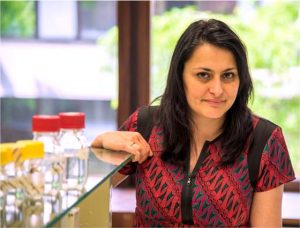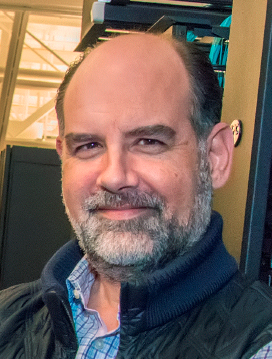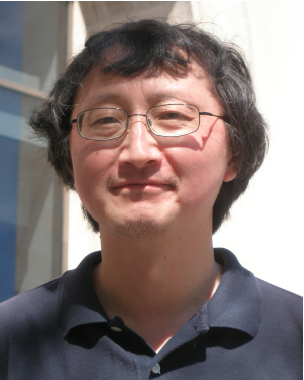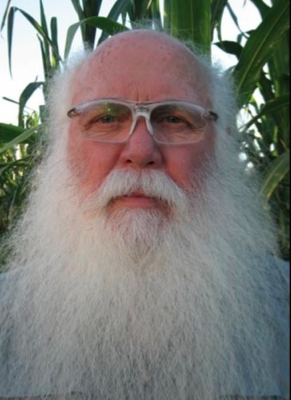About the Series
This is an ongoing lecture series, when there’s an upcoming lecture we will announce it at the top of the page. You can watch past lectures from the links below or by visiting the Jefferson Digital Commons.
2019
Eleonora Leucci, PhD
Affiliation: Professor, Department of Oncology KU Leuven, Belgium
Title: lncRNA and beyond: Uncoupling cytosolic and mitochondrial-translation as an effective anti melanoma strategy
Date: February 28, 2019
Location: Bluemle, Room 107
Time: 11AM-12PM
No video available

2018
Panagiotis (Panos) Roussos, MD, PhD
Affiliation: Associate Professor, Department of Genetics and Genomic Sciences, and the Department of Psychiatry Icahn School of Medicine at Mount Sinai, New York, NY
Title: Big Data Analysis and Genetic Liability to Neuropsychiatric Disease
Date: Monday May 21, 2018
Location: Jefferson Alumni Hall, Room 207
Time: 3:30-4:30pm

2017
Nikos Kyrpides, PhD
Affiliation: Prokaryote Super Program Head, DOE Joint Genome Institute
Title: Identifying the micro from the peta: tales of big data in the micro world
Abstract: View abstract
Date: Monday June 26, 2017
Location: Jefferson Alumni Hall, Solis Cohen Auditorium
Time: 3:30-4:30pm

Anindya Dutta, MD, PhD
Affiliation: Byrd Professor and Department Chair, Biochemistry and Molecular Genetics, University of Virginia
Title: Noncoding RNAs Regulating Differentiation and Cancer
Abstract: View abstract
Date: Wednesday June 7, 2017
Location: Jefferson Alumni Hall, Solis Cohen Auditorium
Time: 3:30-4:30pm

Todd M. Lowe, PhD
Affiliation: Professor and Chair, Biomolecular Engineering, University of California, Santa Cruz
Title: The Human tRNA Story: A Complex Epigenomic Landscape Unfolds
Abstract: View abstract
Date: Wednesday April 19, 2017
Location: Jefferson Alumni Hall, Solis Cohen Auditorium
Time: 3:30-4:30pm

2016
Tao Pan, PhD
Affiliation: Professor, Department of Biochemistry and Molecular Biology, Committee on Microbiology, The University of Chicago
Title: mRNA and tRNA Modifications in the Regulation of Gene Expression
Date: Wednesday November 16, 2016
Location: Jefferson Alumni Hall, Solis Cohen Auditorium
Time: 3:30-4:30pm

George A. Calin, MD, PhD
Affiliation: Professor, Departments of Experimental Therapeutics & Leukemia Co-Director, The RNA Interference and Non-Coding RNA Center The University of Texas MD Anderson Cancer Center Houston, Texas
Title: About Chomsky, DNA Patterns, Non-Coding RNAs and Cancer Patients
Date: Thursday June 10, 2016
Location: Jefferson Alumni Hall, Room 207
Time: 12:00-1:00pm

2014
Carol J. Bult, PhD
Affiliation: Professor, Deputy Director, The Jackson Laboratory Cancer Center. Scientific Director, Patient Derived Xenograft/Cancer Avatar Program, The Jackson Laboratory, Bar Harbor, Maine, 04609
Title: Patient Derived Xenografts (PDX) and Individualized Cancer Therapy
Abstract: View abstract
Date: Monday November 17, 2014
Location: Jefferson Alumni Hall, Solis-Cohen Auditorium 1st floor (East End of Building)
Time: 2:00-3:00pm
Howard-Yana Shapiro, PhD
Affiliation: Chief Agricultural Officer, Mars Advanced Research Institute Fellow, MARS, INCORPORATED, University of California, Davis, The World Agroforestry Centre
Title: “Ending Stunting in Rural Africa Through Enhanced Nutrition and Micro-Nutrients in Plants” — It is not so much a question of more food. It is more a question of better food.
Abstract: View abstract
Date: Wednesday October 22, 2014
Location: Bluemle Life Sciences Building, Rooms 105/107
Time: Noon

Tuuli Lappalainen, PhD
Affiliation: New York Genome Center, and Department of Systems Biology Columbia University
Title: Transcriptome Sequencing Uncovers Functional Variation in the Human Genome
Date: Wednesday April 23, 2014
Location: Connelly Auditorium of the Hamilton Building
Time: 3:30pm
Edison T. Liu, MD
Affiliation: President and CEO of the Jackson Laboratory
Title: Systems Biology in Cancer Medicine: Combinatorics and the Long Tail
Date: Wednesday March 5, 2014
Location: Connelly Auditorium of the Hamilton Building
Time: Noon
2013
Oliver Hobert, PhD
Affiliation: Howard Hughes Medical Institute, Columbia University Medical Center
Title: Regulation of miRNA expression in the context of functional lateralization of the brain
Date: Wednesday February 13, 2013
Location: Solis-Cohen Auditorium of the Jefferson Alumni Hall Building
Time: 3:30pm
2012
Zissimos Mourelatos, MD
Affiliation: Department of Pathology and Laboratory Medicine, Perelman School of Medicine, University of Pennsylvania
Title: piRNAs and piRNPs: the good shepherds of the germline
Date: Wednesday October 24, 2012
Location: BLSB 101 of the Bluemle Life Sciences Building
Time: 3:30pm
Gideon Dreyfuss, PhD
Affiliation: Howard Hughes Medical Institute, Perelman School of Medicine, University of Pennsylvania
Title: U1 snRNP determines mRNA length: an unexpected dimension in gene expression regulation
Date: Wednesday May 16, 2012
Location: Connelly Auditorium of the Hamilton Building
Time: 3:30pm
No video available
James Eberwine, PhD
Affiliation: Department of Pharmacology, Perelman School of Medicine, University of Pennsylvania
Title: Cellular RNA Memory and the Sentinel RNA Hypothesis
Date: Wednesday April 25, 2012
Location: Connelly Auditorium of the Hamilton Building
Time: 3:30pm
2011
Neil Smalheiser, MD/PhD
Affiliation: Department of Psychiatry, College of Medicine, University of Illinois at Chicago
Title: Two stories of small RNAs in synaptic plasticity
Date: Tuesday June 14, 2011
Location: Connelly Auditorium of the Hamilton Building
Time: 3:30pm
Frank Slack, PhD
Affiliation: Department of Molecular, Cellular and Developmental Biology, Yale University
Title: MicroRNAs as targets and targeted therapies in cancer
Date: Wednesday May 11, 2011
Location: Connelly Auditorium of the Hamilton Building
Time: 3:30pm
Eric Lai, PhD
Affiliation: Developmental Biology Program, Memorial Sloan Kettering Cancer Center
Title: MicroRNAs: Biogenesis and Function
Date: Thursday February 24, 2011
Location: Connelly Auditorium of the Hamilton Building
Time: 3:30pm
2010
Ramin Shiekhattar, PhD
Affiliation: Gene Expression and Regulation Program, The Wistar Institute
Title: Long non-coding RNAs as enhancers of transcription
Date: Wednesday December 15, 2010
Time: 3:30pm
No video available
Pier Paolo Pandolfi, MD, PhD
Affiliation: Beth Israel Deaconess Medical Center, Harvard Medical School
Title: A Novel Biological Dimension for Coding and Non-Coding mRNAs and its Role in Tumorigenesis
Date: Monday October 18, 2010
Time: 3:30pm
No video available
